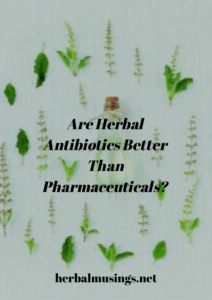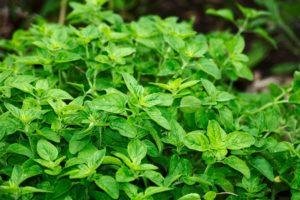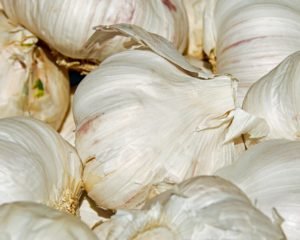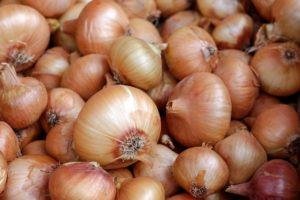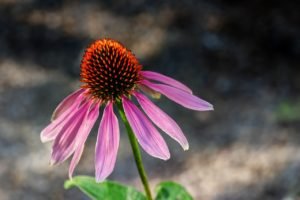Herbal antibiotics have long been used by herbalists to ward off colds and flu, clear infections, treating respiratory problems and speed wound healing. Nature has served as humankind’s pharmacy for millennia. Nature has provided thousands of natural medicines and natural antibiotics over millennia. Most people are unaware, but virtually all pharmaceutical medications originally came from plants.
Antibiotic resistance is a genetic trait and antibiotic resistance transfers very quickly between one bacteria and another. Bacteria communicate with each other extremely rapidly. Through this communication, they are able to transfer survival traits.
Natural antibiotics are reemerging as a viable solution to antibiotic-resistant bugs that can’t be killed with pharmaceuticals.
The TED talk below by Bonnie Bassler gives examples of some of the rapid communication abilities of bacteria.
How Are Herbal Antibiotics Different From Pharmaceutical Antibiotics?
Antibiotics kill or inhibit bacterial growth. A big problem with pharmaceutical antibiotics is that it also kills good bacteria your body needs. This results in wreaking havoc in your gut biodome.
Antibiotics are being overused. They are given to about 30% of all women during pregnancy or labor, and these reach the baby through the mom’s bloodstream. By 2 years old, 69% of children in the US have received at least one antibiotic course. The average is 2.3 courses for ear infections, bronchitis, sore throat, and other common childhood illnesses. Antibiotics do not treat these conditions.
Antibiotics are widespread in our foods, especially animal products. If you drink 2 glasses of milk each day, unless it is from antibiotic-free animals, you are potentially getting a daily dose of about 50 micrograms of tetracycline. At least 80 million pounds of antibiotics go into our cattle, poultry, and farmed fish each year. This is not just to keep them “healthy” in their over-crowded feedlot conditions, but to promote their growth.
A reason for the success of plant-based medicines is that they contain multiple substances that each play a role in fighting infections. This complexity also equips them to wage war against resistant bacteria.
Unlike pharmaceutical medicines, herbal medicines are complex biological plants. They have evolved slowly over time and contain hundreds, if not thousands, of active compounds all working together increasing the effectiveness of the compounds.
Because of their very complex nature, medicinal herbs never work in one single way. Rather they work to cleanse the blood, strengthen the immune system, tone the mucous membranes and improve the function of particular organ systems. Antibiotic plants treat imbalances in the whole body, not just killing bacteria.
5 Most Effective All-Natural Antibiotics
Oregano oil (Origanum vulgare) is one of the most powerful antibacterial essential oils because it contains carvacrol and thymol, two antibacterial and antifungal compounds. Oregano oil is effective against many clinical strains of bacteria including E. coli and Pseudomonas aeruginosa. Pseudomonas aeruginosa is a bacterial infection occurring in hospitals or with people with weakened immune systems.
Oregano oil is a broad-spectrum antibacterial, which means it kills both gram-positive and gram-negative bacteria species. Oregano oil capsules are effective against antibiotic-resistant bacteria.
Manuka honey is from the nectar of manuka (Leptospermum scoparium) trees. It is one of nature’s richest antimicrobial sources and it has powerful antibacterial activity. Manuka honey effectively inhibits multiple drug-resistant pathogens, indicating it has a broad spectrum of antibacterial capabilities. Honey disperses and kills bacteria living in biofilms or communities of cells. Manuka honey prevents the growth of bacteria in wounds, mucosal surfaces, and implanted devices.
This honey fights superbugs that have become resistant to antibiotics. These include MRSA and pseudomonas aeruginosa.
Take one to two tablespoons of Manuka honey per day. You can eat it straight or add the honey to yogurt, a smoothie or toast. Don’t heat the honey, heating it alters its therapeutic properties.
Garlic (Allium sativum) has antimicrobial activity and works to kill pathogens responsible for common infections. Garlic has been used for centuries to combat infectious diseases. Its antimicrobial properties are strongest when raw. Garlic possesses numerous antioxidants that kill bacteria and free radicals in the blood protecting the immune system and making it stronger.
Chew on raw, peeled cloves of garlic. The allicin absorbs directly into your bloodstream through your tongue and cheeks. If the taste is too strong you can chop a clove into smaller pieces and swallow these as you would tablets. Take 3 to 5 cloves a day.
Onions (Allium cepa L) the sulfur compounds in onions are the key elements for use as an antibiotic. Onions contain powerful flavonoids that have antibiotic effects.
When using onions for their medicinal benefits, cut one open and let it sit for about 10 minutes to increase the phytonutrient content. Sauté sliced or chopped onions with coconut oil and mix them with raw garlic to help inhibit pathogens.
Echinacea (Echinacea purpurea) is a powerful immune system stimulator that fights a number of infections, including those caused by bacteria. Take echinacea as soon as symptoms develop, it helps cut the duration of illnesses that are treated with antibiotics.
Echinacea treats open wounds, diptheria, cellulitis, blood poisoning, syphilitic lesions, and other bacterial-related diseases. Most people take it for fighting colds and flu. This potent herb possesses the ability to destroy the most virulent bacteria such as Staphylococcus aureus which causes deadly MRSA.
Research shows that taking 10 milligrams of echinacea per one kilogram of body weight daily for a 10-day period boosts the immune system and helps combat infections.
Probiotics taking probiotics daily reduces harmful, resistant bacteria and increases good bacteria in your gut. Research shows that taking probiotics helps boost your immune system. They are especially important after you’ve taken antibiotics and need to replenish your good bacteria.
We are in the midst of a global health crisis, antibiotic resistance. This is a direct result of the over prescribing and inappropriate prescribing of antibiotics and the overuse of antibiotics in the meat industry. Each year in the US alone over 2 million Americans acquire serious infections with bacteria that are now resistant to some or all of the antibiotics that we have to treat those organisms.
Don’t you think herbal antibiotics are a safer way to treat infections?
This post may contain affiliate/referral links. Read my full Disclosure/Disclaimer Policy.
